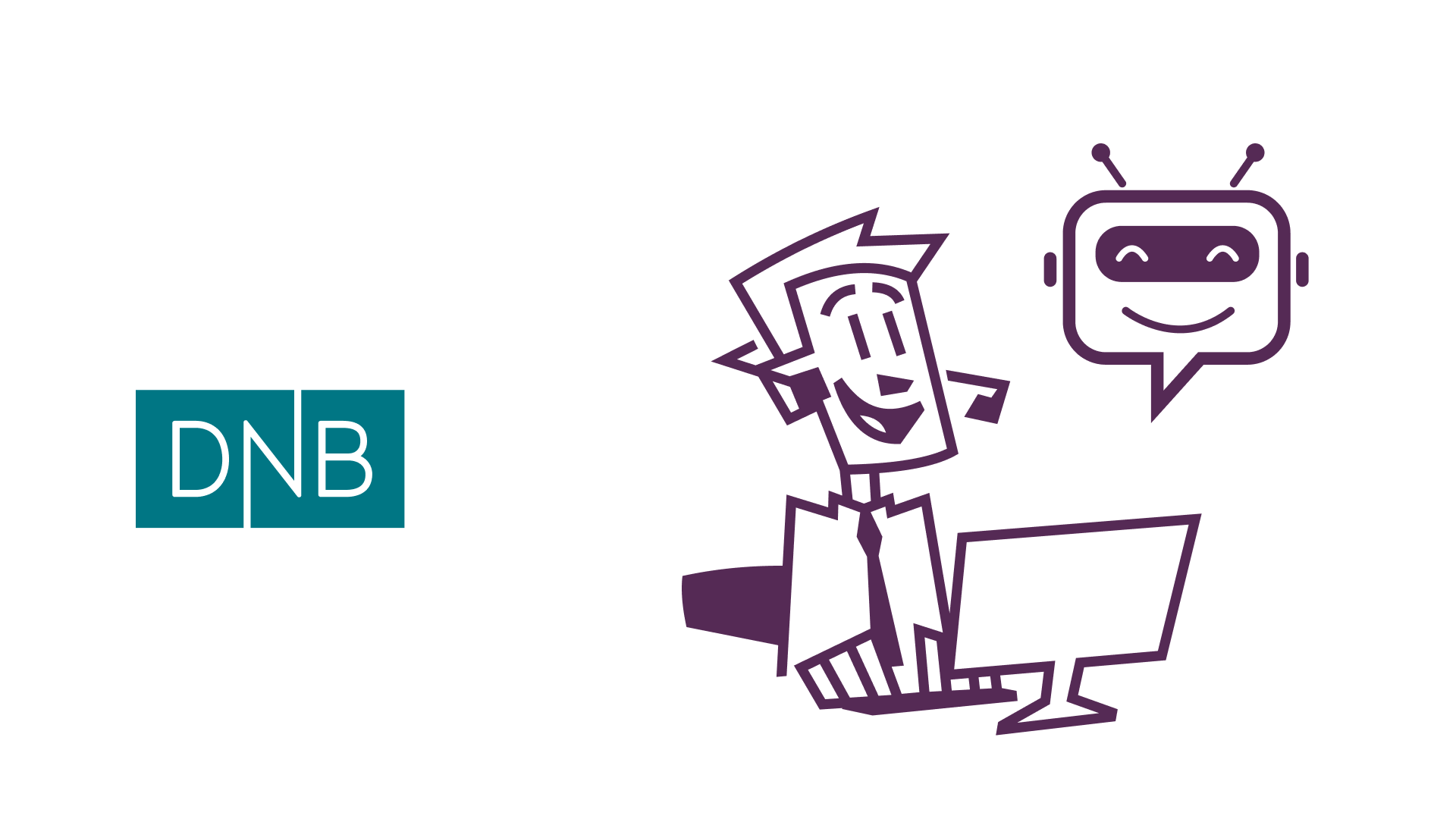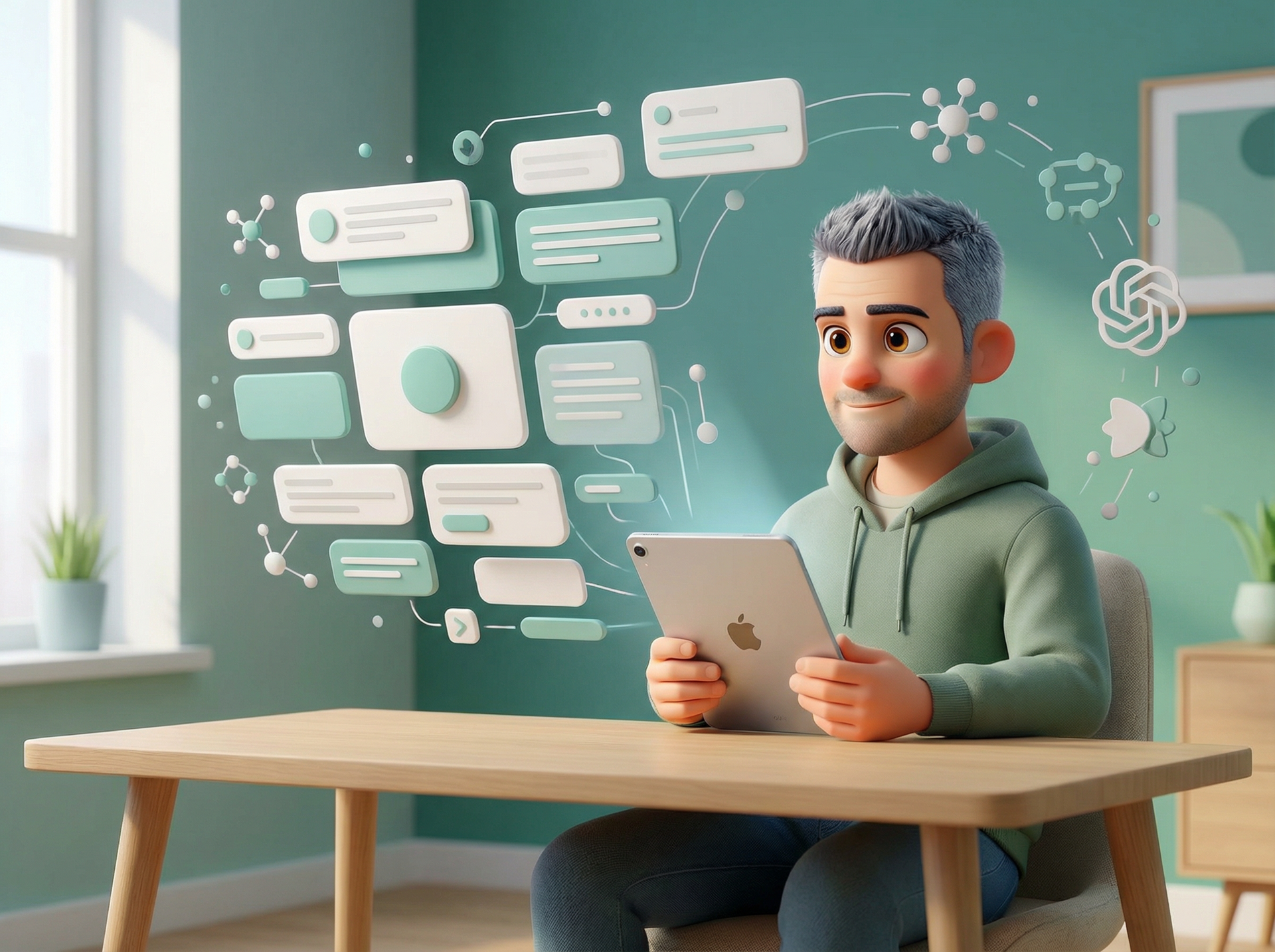Artificial intelligence for the jobs of the future
Internal bots are changing the rules of (co)operation in modern companies
The role of artificial intelligence in communication is multifaceted and increasingly indispensable. It offers innovative solutions that are transforming the way employees interact and collaborate. Chatbots or smart assistants using AI have become a key tool for improving internal communication, streamlining processes and boosting employee engagement. This is illustrated by the practical examples from our technology partner Boost.ai.
The benefits that chat and conversation bots bring to the table extend beyond the role of smart assistants. The shift from a "go digital" to a "be digital" mindset is driving the adoption of new management practices that prioritise collaboration and integration and take full advantage of the benefits of digitalisation and artificial intelligence.

Are smart assistants just a tool for customer contact?
No! The same technology can also be used internally to create the best (virtual) colleague you could ever wish for. Your in-house virtual agent can help streamline all your most labour-intensive internal processes, while enhancing employee efficiency and productivity. Your internal smart assistant can optimise your company's performance using automated proactive notifications, so you're always up to date. It consolidates all your relevant information or serves as a treasure trove of knowledge in one place. It supports your HR and IT departments and, most importantly, makes repetitive and time-consuming tasks a thing of the past.
Smart assistants as creative and analytical copilots
The ability of AI to accelerate creativity is invaluable. It provides a source of ideas and suggestions, which is particularly useful for those looking for fresh perspectives or solutions. It also helps when it comes to developing new strategies, as AI can suggest different and sometimes unconventional ideas that might escape employees’ notice.
Above all, AI is great at processing complex content. It efficiently aggregates large volumes of material into concise summaries that highlight key points and necessary actions. This capability is particularly useful for quickly conveying the gist of lengthy reports or technical documents, saving staff time and improving understanding of the content.
Breaking down language and cultural barriers and equalising skills
In today's globalised work environment, artificial intelligence plays a key role in overcoming language and cultural differences. Its ability to recognise and translate multiple languages in real time is revolutionary, ensuring clear and inclusive communication between different teams. This feature not only improves understanding but also promotes a more inclusive and collaborative culture in the workplace.
But that's not all; the use of AI and the tools it powers also allows for greater equality in terms of access to knowledge. According to
Econsultancy, the use of such tools can improve the 'average' in terms of work performance by as much as 20% to 30%. Consequently generative AI tools can do more than just boost the efficiency of teams, they can also improve the quality of the work done by team members. A study by the Boston Consulting Group found that less-skilled consultants saw a 43% increase in performance as a result of using AI, while higher-skilled consultants also saw an increase in performance, but only 17%.

The evolution of business communication using artificial intelligence
AI-driven systems such as chatbots and voice assistants are becoming increasingly popular tools for improving business, especially with the rise of ChatGPT. They offer instant and personalised support and integrate seamlessly into various internal functions such as helpdesk, IT support and HR.
Conversational AI plays an invaluable role in improving the employee experience, particularly from a process management and usability perspective. It ensures that employees receive quick and relevant answers to their questions and facilitates the escalation of complex issues to human representatives, providing a comprehensive and efficient support system. In this context, it not only supports the resolution of customer challenges, but more importantly empowers employees to focus on key tasks, while repetitive tasks and issues can be automated. How smart assistants in companies are transforming business
Two use cases of in-house bots or smart assistants implemented by our technology partner Boost.ai highlight the transformative impact of chatbots using artificial intelligence.
DNB, Norway's largest bank, has implemented Juno as a virtual agent to assist agents and advisors in customer service. Functioning as an advisory bot for customer service and retail banking staff, Juno aims to increase productivity by replacing cumbersome employee manuals with a user-friendly conversational interface that makes it easier to find information. With more than 5,000 daily users, Juno is popular with employees due to its consistently high accuracy rate of 80%. The bank has extended this chat-first approach to other internal areas, introducing the Hugo bot, which assists employees 24/7 with HR-related queries, while Fix is dedicated to IT support and handles incoming queries to DNB's service desk.

Similarly, Michigan State University Federal Credit Union (MSUFCU) has consistently used its Innovation Lab to explore new ways for delivering a better technical experience to its extensive membership of over 345,000 and a workforce of over 1,100 employees. Advanced smart assistant technology solutions developed by Boost.ai have been used to launch an in-house virtual assistant named Gene and a member-facing virtual assistant named Fran. The team of trainers is continuously expanding the knowledge base of both assistants and optimising their ability to answer questions as quickly and accurately as possible to achieve an impressive (around 98% for Fran) claim resolution rate. This has significantly improved the employee experience and allowed them to focus on more complex support and service queries.
The integration of AI into business operations and internal communications is a paradigm shift in how organisations operate and communicate. Its impact ranges from amplifying creativity and analytical skills to providing emotional intelligence and breaking down cultural barriers. As AI continues to advance, its role in enabling a more connected, engaged and effective future-oriented workplace is increasingly important. However, learning the skills that employees need to make the most of these tools is also key to strengthening the democratisation of the use of AI tools.



















